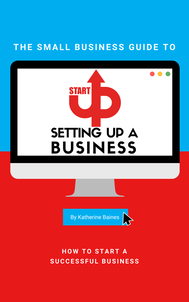Funding

Getting money to set-up and run your business
There are potentially many options available for funding. Here is a summary of the main options available to you:
R&D Tax Credits, also known as R&D tax relief is an HMRC scheme which gives SMEs money back on the research and development they have done in their business, and for clients for finding innovative solutions that enhance technology and science.
Examples where businesses have got money back from HMRC include, recipe creation for a biscuit company, creating a bespoke system for website design, a new way of bottling cider in a bottling plant, and making internal systems talk to each other to create an efficient process.
So, if you are setting up a business in an industry where there is an element of what I unprofessionally call ‘faffing around’ to find a solution and you are limited company, then after your first year of trading you may be entitled to some money back from HMRC.
More information can be found at www.quantumtax.co.uk (for full disclosure this is a company I co-own and manage with Mike Newnham)
HMRC provides a significant list of many funding sources that may be available to you on the following link - www.gov.uk/business-finance-support-finder
There are potentially many options available for funding. Here is a summary of the main options available to you:
- Debt Finance – this could be a bank overdraft, or bank loans. This is probably the one most people think of initially. In my experience banks are still asking for personal guarantees on loans so just be aware of this. A personal guarantee is where you personally guarantee to pay off/settle the debt if your business is unable to.
- Equity finance – this is where you give away a percentage % of your ownership in the company in exchange for money in. Basically, you would give them shares in your company in exchange for money/cash that normally won’t need to be repaid, but sometimes the investor will require a higher dividend if there profits to be able to do so. It means on paper you own less of your company, so if you were to ever sell your company you wouldn’t get 100% of the proceeds. For the small business I am not a fan of this, and I always advise that this should be a last resort, that being said it depends on who is looking to invest in your company, if you look at a Dragons’ Den type scenario, if the person who wants to invest can bring certain skills to the table and wants to be involved in the business and not just a silent shareholder then it is something you may want to consider. Equity finance isn’t really applicable to sole traders or most partnerships, and only suitable for limited companies.
- Grants from government or non-profit organisations. These tend to be industry specific and for very specific purposes. There is normally a lot of paperwork to complete to apply for the grant, but don’t rule it out. Often grants need to be match funded, i.e., you have to put 50% into the pot for the specific nature of what the grant is to be spent on, and then the grant funds the other 50%.
- Friends and family – if you do go down the route of accepting a loan from friends and family please make sure you are clear about the repayment terms so that there is no fall out in the future. I would even suggest you write a one page agreement that you and they sign, to confirm the amount loaned to you, and how it will be paid back, that way you can’t fall out over it as both parties knew where they stood from the beginning, and if you are going to pay it back by a certain date, or in monthly instalments make sure you stick to it because you never know when you may need their help in the future, and if you failed to stick to the terms you agreed, it is unlikely that they’ll help you again.
- Asset finance – this is used where you need to buy expensive pieces of equipment, an example would be a hire purchase agreement where a loan is secured on the items of equipment or vehicles. Normally taken over 3-5 years, you own the asset in full at the end of the term. Sometimes a personal guarantee is also asked for on this type of funding.
- Crowd Funding is where you put your business proposal forward to a crowd funding portal and potentially a large number of individuals will all put in small amounts of money to fund your business. Interest is normally payable, and repayment due at a certain point in the future.
- Peer to Peer Lending is a type of debt financing where you borrow money from an individual without the use of an official intermediary such as a bank. Peer to Peer lending works similar to a normal bank loan.
- R&D Tax Credits – this will only be available to you if you are a limited company and in your second year of trading, as it is based on money back to your business based on work you have completed.
R&D Tax Credits, also known as R&D tax relief is an HMRC scheme which gives SMEs money back on the research and development they have done in their business, and for clients for finding innovative solutions that enhance technology and science.
Examples where businesses have got money back from HMRC include, recipe creation for a biscuit company, creating a bespoke system for website design, a new way of bottling cider in a bottling plant, and making internal systems talk to each other to create an efficient process.
So, if you are setting up a business in an industry where there is an element of what I unprofessionally call ‘faffing around’ to find a solution and you are limited company, then after your first year of trading you may be entitled to some money back from HMRC.
More information can be found at www.quantumtax.co.uk (for full disclosure this is a company I co-own and manage with Mike Newnham)
HMRC provides a significant list of many funding sources that may be available to you on the following link - www.gov.uk/business-finance-support-finder

